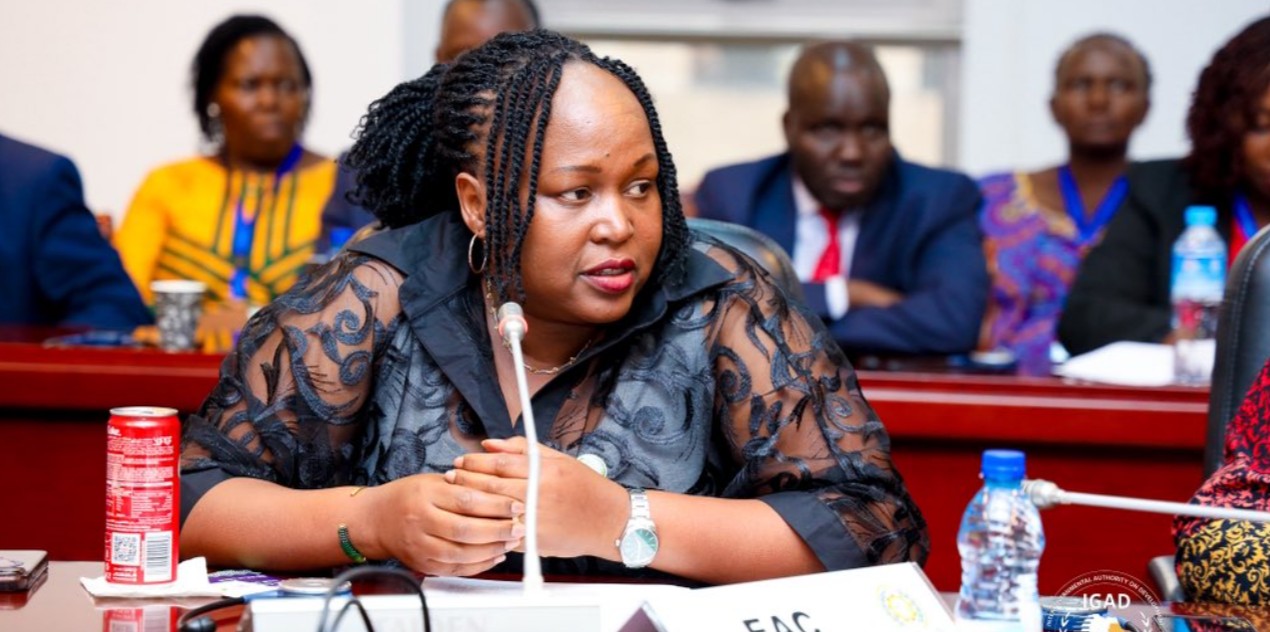AU mid-year summit in Malabo renews push for regional integration amid lingering divisions

The African Union’s long-standing but elusive dream of continental integration once again took centre stage over the weekend, as African leaders, policymakers, and heads of regional blocs convened in Malabo, Equatorial Guinea, for the AU Mid-Year Coordination Meeting.
Jointly hosted by the Intergovernmental Authority on Development (IGAD) and the AU Commission, the inter-REC/RM CEOs Coordination Meeting brought together leaders of various Regional Economic Communities (RECs) and Regional Mechanisms (RMs), including the East African Community (EAC), to enhance institutional coordination and align priorities with Agenda 2063.
Among the key agenda items were the need for deeper AU-REC integration, formal recognition of RECs within the AU architecture, and the persistent challenge of securing sustainable budget support for regional bodies—an area still heavily reliant on external funding and often under-resourced.
Conduct working visits
EAC Secretary-General Veronica Nduva called on the AU to move beyond rhetorical commitments by encouraging commissioners to conduct working visits to REC institutions. Such visits, she argued, would foster “a more grounded understanding” of the day-to-day realities and challenges regional blocs face.
Nduva also underscored the need for gender equity and the meaningful inclusion of women in AU leadership structures.
In response, the AU Chair pledged to prioritise visits to RECs and signalled a more hands-on and responsive leadership approach moving forward.
Persistent divisions
IGAD, which currently chairs the Inter-REC/RM Coordination Platform, reaffirmed its dedication to harmonising regional efforts and advancing African-led solutions. Its leadership stressed the urgency of enhanced coordination to accelerate progress on Agenda 2063—the AU’s strategic blueprint for Africa’s transformation.
Still, beneath the choreography of unity, persistent divisions remain.
Despite ambitious declarations, the realisation of regional integration goals continues to depend heavily on the political will of member states, many of whom remain divided over border disputes, trade frictions, and domestic political instability.
IGAD, for instance, includes member countries deeply entangled in the ongoing Sudan conflict, while the EAC faces hurdles in expanding its membership and enforcing its common market commitments.
The AU Mid-Year Coordination Meeting remains the continent’s top platform for aligning regional and continental integration efforts.
However, with fragmented national interests and uneven implementation across blocs, the vision of a unified African market under the African Continental Free Trade Area (AfCFTA) still risks remaining more aspirational than actionable.
Jointly hosted by the Intergovernmental Authority on Development (IGAD) and the AU Commission, the inter-REC/RM CEOs Coordination Meeting brought together leaders of various Regional Economic Communities (RECs) and Regional Mechanisms (RMs), including the East African Community (EAC), to enhance institutional coordination and align priorities with Agenda 2063.
Among the key agenda items were the need for deeper AU-REC integration, formal recognition of RECs within the AU architecture, and the persistent challenge of securing sustainable budget support for regional bodies—an area still heavily reliant on external funding and often under-resourced.
Conduct working visits
EAC Secretary-General Veronica Nduva called on the AU to move beyond rhetorical commitments by encouraging commissioners to conduct working visits to REC institutions. Such visits, she argued, would foster “a more grounded understanding” of the day-to-day realities and challenges regional blocs face.
Nduva also underscored the need for gender equity and the meaningful inclusion of women in AU leadership structures.
In response, the AU Chair pledged to prioritise visits to RECs and signalled a more hands-on and responsive leadership approach moving forward.
Persistent divisions
IGAD, which currently chairs the Inter-REC/RM Coordination Platform, reaffirmed its dedication to harmonising regional efforts and advancing African-led solutions. Its leadership stressed the urgency of enhanced coordination to accelerate progress on Agenda 2063—the AU’s strategic blueprint for Africa’s transformation.
Still, beneath the choreography of unity, persistent divisions remain.
Despite ambitious declarations, the realisation of regional integration goals continues to depend heavily on the political will of member states, many of whom remain divided over border disputes, trade frictions, and domestic political instability.
IGAD, for instance, includes member countries deeply entangled in the ongoing Sudan conflict, while the EAC faces hurdles in expanding its membership and enforcing its common market commitments.
The AU Mid-Year Coordination Meeting remains the continent’s top platform for aligning regional and continental integration efforts.
However, with fragmented national interests and uneven implementation across blocs, the vision of a unified African market under the African Continental Free Trade Area (AfCFTA) still risks remaining more aspirational than actionable.
IGAD
Sudan Conflict
African Union
AfCFTA
AU Commission
EAC Secretary General Veronica Nduva
AU Mid-Year Coordination Meeting
Regional Economic Communities
Let’s Connect
We’re here to listen, support, and engage with you.
Whether it’s feedback, a request, or collaboration — Hon. Yusuf Hassan’s team welcomes your message.
Office Address
Kamukunji Constituency Office, Nairobi
Call
+254 737 500200, +254 716 667733
“Leadership is not about position — it’s about purpose, people, and progress.”